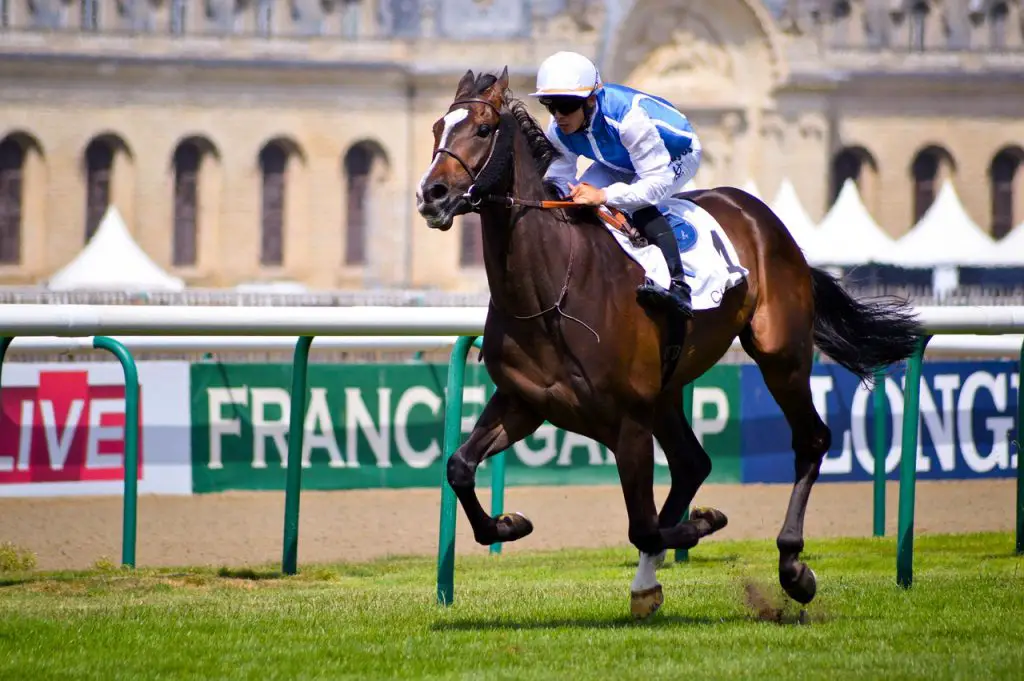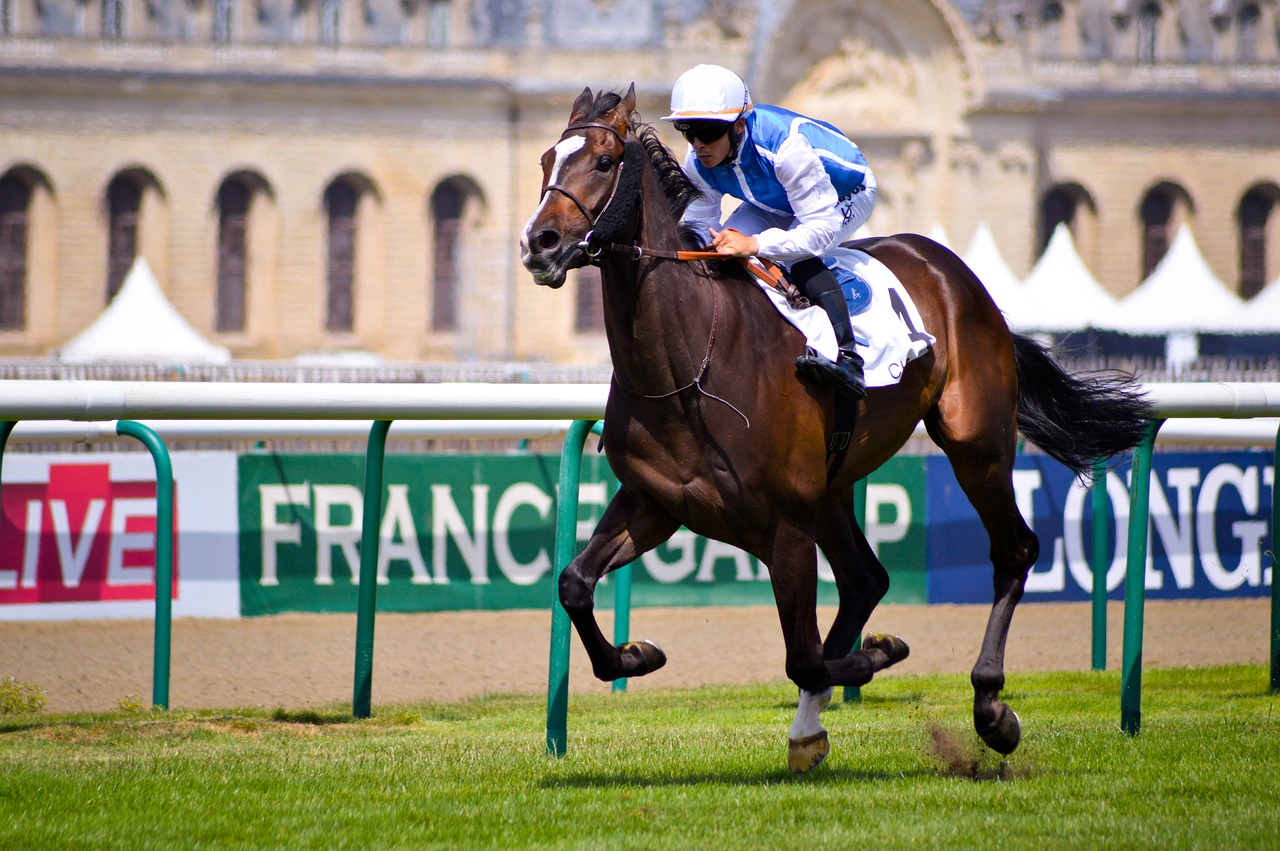Last Updated on March 1, 2022 by Allison Price
Anyone who has been to a horse race knows how to recognize jockeys. It is easy to spot jockeys near horses and on the horse track, as they are often dressed in conspicuous clothing. It is difficult to determine their exact height and weight without seeing them up close.
These traits can vary depending on which horse breed they are riding and what type of horse racing they are. It is possible to calculate the average jockey’s height and weight in most cases. Horse health is important, and there are strict limits on the size. Let’s have a closer look.
Table of Contents [ hide]
- What is the Role of Jockey Size?
- Jockeys Limit on Weight
- Height Limits For Jockeys
- Extreme Methods Jockeys Use to Stay Small
- Other Requirements
- Summary
What Does the Jockey Size Mean?
Volume 0%
To compete in horseracing, jockeys must adhere to strict weight requirements. These can vary from one race to the next, but they must be within a narrow range.
As you can see, jockeys’ height and weight directly affect a horse’s health. A heavier jockey can have a significant impact on the horse’s ability to participate in future races.

The commissioners determine the maximum weight that each horse can carry before any race. This is the so-called assigned horseweight.
To maximize their chances of winning, racehorse trainers choose jockeys who are closest to the assigned weight. It’s simple math. The horse with more weight has a lower chance of finishing in the first place.
| Average height and weight of a jockey | ||
| Average body weight | Height | Weight |
| Male | 69 inches (1.75m) | 200 pounds (90.7 kg) |
| Male jockey | 62 inches (1.57m) | 113 pounds (51.3 kg) |
| Female | 64 inches (1.63m) | 170 pounds (77 kg) |
| Female jockey | 62 inches (1.57m) | 107 pounds (48.5 kg) |
| Flat jockey | 58 to 6 inches (1.47 – 1.68 m). | 108 to 118 lbs (49 to 53.5 kg). |
Although there are no restrictions in professional racing horse industry regarding jockeys’ heights, shorter jockeys tend to be more popular. Trainers believe that a horse with a smaller body is more suited to having more weight.
It is also believed that jockeys who are shorter have better control of the horses during horserace.
Trainers will often choose the shorter jockey when they have two equally sized jockeys. Although the regulations don’t specify this height, it is very rare to see a jockey over 68 inches (1.73m).
Weight Limit For Jockeys
Weight limits for jockeys are determined by two factors. The first is the horse’s size and the maximum weight that each animal can carry. The horserace type will determine the second.
Racing Type
Flat racing is easier for lighter and shorter jockeys if you can accelerate your speed as fast possible. They will succeed more than taller and heavier jockeys.
Jump racing, on the other hand requires extra strength and endurance to control the horse. Jockeys’ weight and skill are equally important. This race requires taller jockeys, who must weigh between 108 and 118 pounds (49 to 53.5 kg).
Be aware that there are some races where jockeys must be a certain size. Their Kentucky Derby weight limit is 119 pounds (54kg). It will rise to 126 lbs (57 kg) after adding the tackweight.
Flat races in the UK require jockeys to adhere to a minimum weight of 112 pounds (51kg) National Hunt jockeys will not allow anyone to eat more than 140 pounds (64kg).
Horse Racing Weight Control
Racehorses can typically carry between 118 and 122 pounds (53 to 55 kg), but it is important to consider the weight of equipment. Horserace weight guidelines are very strict.
All jockeys must weigh in before and after every race. It also includes equipment weight.
If a jockey is less than the minimum weight, organizers will give small lead weights and add it to their saddle. They will compensate the jockey’s weight in order to balance the race.
Finaly, jockeys should also check their weight after each race. It is impossible to accurately determine the horse’s weight during a race. Therefore, jockeys can allow their weight to fluctuate by up to 4 pounds (2 kg).
Height Limits for Jockeys
As I mentioned before, weight limits are important in horseracing. However, there are no height restrictions. This doesn’t mean you won’t find jockeys who are all sizes. Most jockeys are between 58 and 67 inches (1.47 to 1.70 m) in height on average.
The average height of a jockey in the UK and the US is 69 inches (1.75m). This means that most professionals are shorter than the average male.
As I mentioned above, shorter jockeys can meet strict weight requirements more easily. They are also stronger because of the higher proportions in their bodies.
Tall jockeys can lose weight until they are able to meet the requirements of the trainers. It will likely adversely affect their health in most instances.
Jump racing is an alternative to traditional horseracing for tall jockeys because it has fewer weight restrictions. Because tall jockeys are typically heavier, they can have the extra stamina required for this type of horseracing.
There are Exceptions that Confirm the Rule
There are always exceptions to every rule. You can find successful jockeys who are taller than their competition.
Patrick Sankey won the point to point race in 2019, one of many recent examples. He stands at a staggering 79 inches (2 m) in height, which is unusual and unheard of for this profession.
Stuart Brown, a professional Australian jockey who died in 2012, stood at 74 inches (1.88m). Many speculated that Brown’s weight problems may have been the reason for his short life span.
Bruce Hobbs was the most successful and well-known tall jockey ever. He was the youngest ever jockey to win the English Grand National in 1938 and won the Welsh Grand National. He was 73 inches (1.85m) tall.
Extreme Methods Jockeys Use To Stay Small
Jockeys must adhere to strict diets in order to keep their weight down and be competitive in the sport. They could lose their contract and be without payments.
Jockeys may take strict measures to maintain their weight. You may come across jockeys who use certain methods to stop their growth.
These decisions can lead to serious health problems in the long-term. These are the most extreme methods that jockeys have used:
Irregular Eating
Professional jockeys often skip meals when their weight is a concern in a horserace. This is especially true in the days leading up to big, well-known races that will bring large amounts of money.
The diet of jockeys will be different in this instance. Some people will eat less than others, while others may skip the entire meal.
Diuretics to help with dehydration
Horseracing is facing an increase in diuretics. Horseracing is becoming more difficult because jockeys are often prescribed pills to flush out water from their bodies and lose weight.
Diuretics can also affect the levels of other minerals in the body. Their health will suffer long-term if they are used frequently.
Flipping
Flipping is one the most dangerous methods jockeys use. To lose weight, they force themselves to vomit.
In one era, jockeys used to flip so often that organizers put in flipping bowls inside their rooms. These bowls are no longer available, but professional jockeys still enjoy the practice of vomiting just a few hours before a race.
Other Requirements
Because they are constantly changing horses and clubs, professional jockeys can often be compared to freelancers. They must also advertise to horse owners and other organizations all the time.
Their primary characteristics are their body and size. Athletes need to take care of their bodies as professionals in other sports. Although the focus is on the upper body, it is important to maintain strong lower body areas.
Professional jockeys must follow strict diets and exercise regimens in order to maintain a healthy weight and stay in shape. To be eligible for new deals, they must pass various fitness tests and weight checks.
Many jockeys choose to complete a good school. The North American Racing Academy offers a 2-year program. It is the best choice in the USA. To participate, they only need a high school diploma.
Summary
Horseracing can be dangerous both on and off the track. Professional jockeying is not an easy job. It requires discipline, stamina and athleticism as well mental strength. Jockeys must also maintain a healthy weight in order to meet the strict requirements of race commissioners.
Jockeys who don’t comply with the weight requirements can’t compete in competitions. Some methods of controlling weight can lead to serious health problems.



